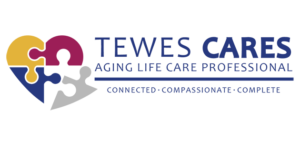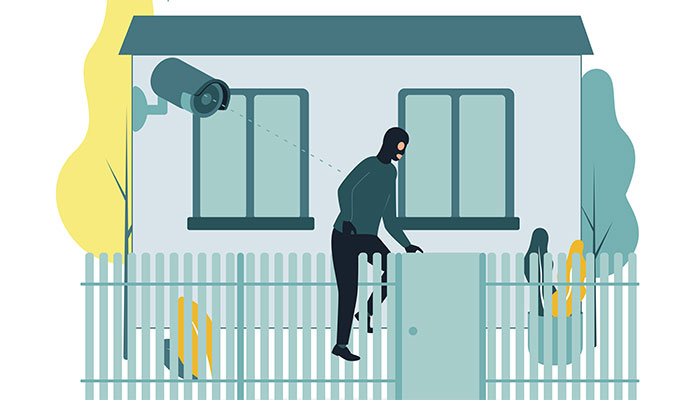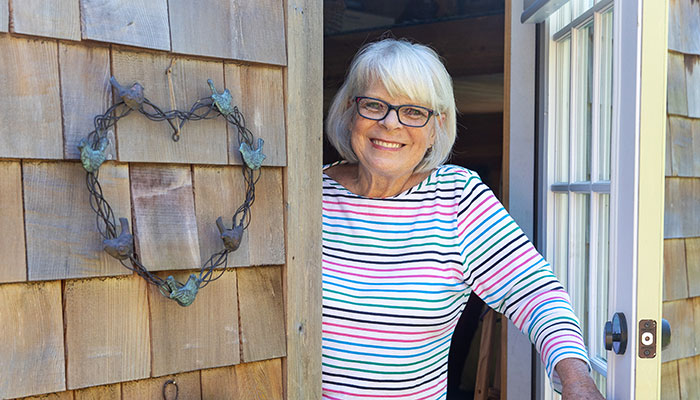
You are a take charge person. You like being in the driver’s seat. It’s your life and you want to be sure you get to live it your way.
Perhaps you cared for your parents and want things handled differently when you reach your own elderhood. Maybe you do not have children and wonder who will help you when you need it. Perhaps you do have children and want to have your independence, make your own decisions.
This blog is for those who want to proactively plan for their later years. Check out our monthly posts for thoughts that can help you decide what will work best for you in terms of housing, paying for care, and meeting life’s challenges as you age.
Want to set up a plan? Call us for a consultation: 203-826-9206


 Do you feel defensive when your kids visit? Notice them exchanging knowing glances when you don't recall a date or name? Perhaps you feel reluctant to approach them when you do have concerns, because they overreact. So you keep your distance. That isn't good, either. It's a fine line between feeling that your adult children...
Do you feel defensive when your kids visit? Notice them exchanging knowing glances when you don't recall a date or name? Perhaps you feel reluctant to approach them when you do have concerns, because they overreact. So you keep your distance. That isn't good, either. It's a fine line between feeling that your adult children...  It might feel scary to tell others if you've been diagnosed with dementia or even just mild cognitive impairment (MCI). Start with those you think will be the most supportive. Perhaps close family and friends. Common reactions. People will vary in how they respond to the news. Some will be genuinely caring and ask how...
It might feel scary to tell others if you've been diagnosed with dementia or even just mild cognitive impairment (MCI). Start with those you think will be the most supportive. Perhaps close family and friends. Common reactions. People will vary in how they respond to the news. Some will be genuinely caring and ask how...  Your health care proxy is an individual you trust to speak for you when you are unable to voice your own decisions: A car accident, surgery, coma, dementia. In such circumstances, doctors need someone who knows you well and has had conversations with you to guide them in terms of the medical procedures you would...
Your health care proxy is an individual you trust to speak for you when you are unable to voice your own decisions: A car accident, surgery, coma, dementia. In such circumstances, doctors need someone who knows you well and has had conversations with you to guide them in terms of the medical procedures you would...  Life plan communities—sometimes called "continuing care retirement communities" (CCRCs)—are private communities that offer residents a full range of care levels, depending on need. For those in independent living, amenities such as a golf course, gym, pool, and tennis and pickle ball courts are typically provided. Some communities even offer college-level classes, a salon, and grocery...
Life plan communities—sometimes called "continuing care retirement communities" (CCRCs)—are private communities that offer residents a full range of care levels, depending on need. For those in independent living, amenities such as a golf course, gym, pool, and tennis and pickle ball courts are typically provided. Some communities even offer college-level classes, a salon, and grocery...  Can two households be better than one? In a trend called "living apart together" (LAT), a growing number of older adults are experimenting with committed relationships that also allow for autonomy. These are people who prefer intimacy and companionship in their lives. At the same time, marriage—or even living together—brings more entanglements than they want...
Can two households be better than one? In a trend called "living apart together" (LAT), a growing number of older adults are experimenting with committed relationships that also allow for autonomy. These are people who prefer intimacy and companionship in their lives. At the same time, marriage—or even living together—brings more entanglements than they want...  If you are used to having an "annual physical" and ask for that, original Medicare won't pay for it. That is, original Medicare won't pay doctors to do a general physical exam "to see what turns up"; you'll pay out of pocket. (Medicare Advantage might have this as an "extra." Check with your plan.) Medicare...
If you are used to having an "annual physical" and ask for that, original Medicare won't pay for it. That is, original Medicare won't pay doctors to do a general physical exam "to see what turns up"; you'll pay out of pocket. (Medicare Advantage might have this as an "extra." Check with your plan.) Medicare...  We tend to think friendships should grow organically. They don't. Particularly in our later years, when we often lose friends—to death, illness, or moving away—we need to be much more intentional about making new ones. This is especially so for "solo agers," those without children and grandchildren. The younger generations in the family typically make...
We tend to think friendships should grow organically. They don't. Particularly in our later years, when we often lose friends—to death, illness, or moving away—we need to be much more intentional about making new ones. This is especially so for "solo agers," those without children and grandchildren. The younger generations in the family typically make...  When Medicare first began in 1965, the idea was that it was for everyone over age 65, not just those who were poor. There would be no stigma. Things are different now. We live longer. Medical costs are rising. In 2003, Congress decided that those with higher incomes should chip in extra to share the...
When Medicare first began in 1965, the idea was that it was for everyone over age 65, not just those who were poor. There would be no stigma. Things are different now. We live longer. Medical costs are rising. In 2003, Congress decided that those with higher incomes should chip in extra to share the...  Seniors experience property crime thirteen times more often than violent crime. Burglary is the most common. (Interestingly, it typically occurs between noon and 4:00 pm!) The average loss is roughly $3,000, although that does not account for the emotional impact: A profound sense of violation and vulnerability. October is Crime Prevention Month. There are things...
Seniors experience property crime thirteen times more often than violent crime. Burglary is the most common. (Interestingly, it typically occurs between noon and 4:00 pm!) The average loss is roughly $3,000, although that does not account for the emotional impact: A profound sense of violation and vulnerability. October is Crime Prevention Month. There are things...  There are many advantages to having a housemate: Defraying expenses. Sharing household chores. Help with transportation. Companionship. Increased safety. Peace of mind. In a survey of older adults who shared their homes, 50% said that since gaining a housemate, they are happier, sleep better, are getting out more, and they call upon their families less...
There are many advantages to having a housemate: Defraying expenses. Sharing household chores. Help with transportation. Companionship. Increased safety. Peace of mind. In a survey of older adults who shared their homes, 50% said that since gaining a housemate, they are happier, sleep better, are getting out more, and they call upon their families less...